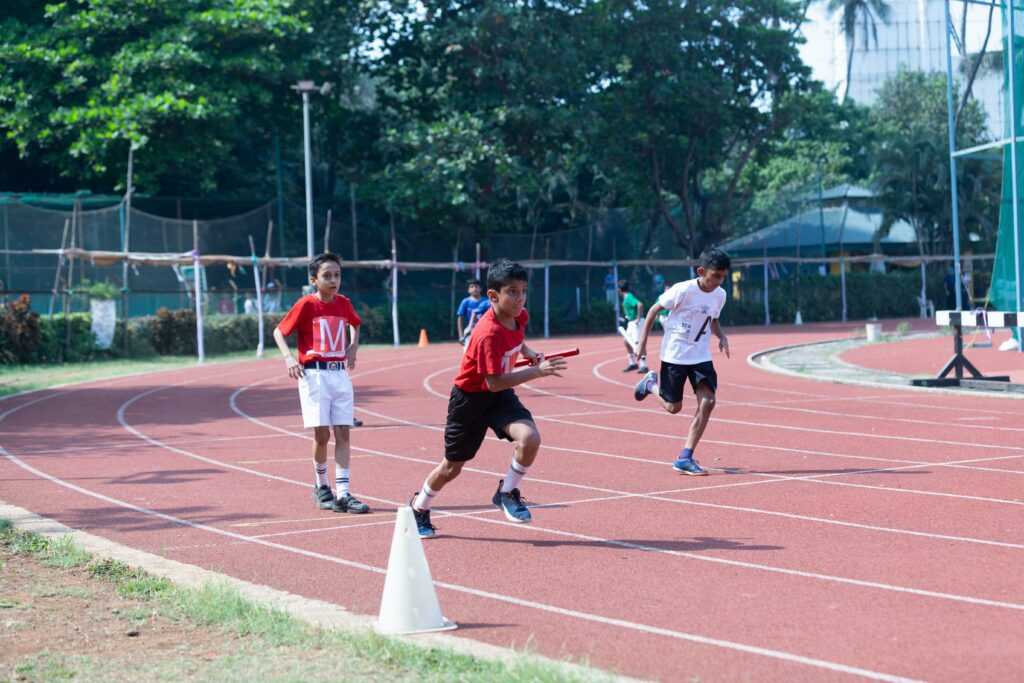As an athlete, I’ve always been fascinated by how nutrition can elevate performance. Advances in nutritional science are reshaping the way we approach endurance and strength training. From innovative supplements to tailored meal plans, these breakthroughs are not just trends; they’re game-changers for athletes at every level.
Imagine fueling your body with the exact nutrients it needs to push through those last few reps or to maintain stamina during a marathon. With the right nutritional strategies, athletes can optimize their training and recovery like never before.
In this article, I’ll explore the latest developments in sports nutrition and how they’re transforming endurance and strength training for athletes everywhere.
Overview of Nutrition Advances
Innovative research has led to groundbreaking developments in sports nutrition, focusing on maximizing athletic performance. Nutritional strategies have evolved to emphasize the importance of macronutrients, micronutrients, and hydration.
Macronutrient Enhancements
- Protein formulations: Advanced protein powders and supplements offer optimal amino acid profiles for muscle repair and growth.
- Carbohydrate timing: Specific carbohydrate intake strategies support glycogen replenishment before, during, and after workouts.
- Fat adaptations: Increased emphasis on healthy fats fuels endurance through better energy utilization.
Micronutrient Innovations
- Electrolyte balance: Enhanced electrolyte formulations prevent dehydration and support muscle function during intense activities.
- Antioxidant supplementation: Vitamins and minerals protect against oxidative stress caused by prolonged exercise, promoting faster recovery.
- Adaptogen inclusion: Natural compounds help the body manage stress and improve overall resilience during training regimes.
Hydration Strategies
- Personalized hydration plans: Tailored hydration goals consider sweat rates and environmental factors, ensuring athletes maintain optimal fluid balance.
- Hydration aids: New products incorporate electrolytes and functional ingredients to enhance absorption and overall hydration effectiveness.
These advancements in nutrition not only improve endurance and strength but also contribute to athletes’ overall health and performance sustainability.
Key Nutritional Components
Nutrition plays a critical role in enhancing athletic performance. Understanding the various components, including macronutrients and micronutrients, is essential for optimizing endurance and strength.
Macronutrients for Performance
Macronutrients—proteins, carbohydrates, and fats—serve as the primary energy sources for athletes.
- Proteins: Enhanced formulations, such as amino acid blends, support muscle repair and growth. Consuming 1.2 to 2.0 grams of protein per kilogram of body weight daily aids recovery after intense training.
- Carbohydrates: Strategic carbohydrate intake before and after workouts maximizes glycogen stores. Aiming for 5 to 10 grams of carbohydrates per kilogram of body weight aids in replenishment, especially following endurance events.
- Fats: Healthy fats, including omega-3 fatty acids, support sustained energy during prolonged activities. Incorporating 20 to 35% of total daily calories from healthy fats optimizes endurance.
Micronutrients’ Role in Endurance
Micronutrients, including vitamins and minerals, significantly impact endurance and recovery.
- Electrolytes: Sodium, potassium, magnesium, and calcium maintain fluid balance and muscle function. Aiming for 300 to 700 mg of sodium per hour during prolonged exercise prevents cramping and dehydration.
- Antioxidants: Vitamins C and E and minerals like zinc combat oxidative stress from rigorous training. Consuming a variety of fruits and vegetables daily ensures adequate antioxidant intake, enhancing recovery.
- B Vitamins: Essential for energy metabolism, B vitamins support efficient energy production. Adequate intake of B12 and folate promotes optimal performance by increasing red blood cell production.
By focusing on these key nutritional components, athletes can effectively enhance their endurance and strength, contributing to their overall performance.
Recent Scientific Research
Recent scientific investigations reveal transformative strategies in sports nutrition, particularly regarding carbohydrate timing and protein supplements. These advancements significantly enhance athletic endurance and strength.
Studies on Carbohydrate Timing
Studies consistently show that the timing of carbohydrate intake plays a crucial role in optimizing glycogen stores. Research indicates consuming carbohydrates within a 30-minute window post-exercise maximizes glycogen replenishment.
Specific studies suggest athletes benefit from a ratio of 3:1 carbohydrate to protein intake in recovery meals, improving muscle recovery and reducing soreness. Additionally, pre-exercise carbohydrate loading, involving high-carb meals 24 hours before competition, has proven effective in enhancing performance during endurance events.
This approach can lead to improved stamina and delayed fatigue in athletes.
Innovations in Protein Supplements
Innovations in protein supplements focus on enhanced formulations designed for efficient muscle recovery and growth. Recent studies demonstrate that whey protein hydrolysates are rapidly absorbed, leading to quicker muscle repair post-exercise.
Advanced formulations, such as plant-based protein blends, cater to a diverse range of dietary needs without sacrificing efficacy. Research supports using branched-chain amino acids (BCAAs) in conjunction with protein supplements to further drive muscle synthesis and decrease exercise-induced muscle damage.
These innovations ensure athletes receive optimal support for their training, promoting both strength gains and recovery.
Practical Applications for Athletes
I focus on practical applications of nutrition that athletes can implement to enhance endurance and strength. These strategies involve targeted meal planning and effective hydration methods that cater to specific training needs.
Meal Planning Strategies
I create personalized meal plans that align with an athlete’s training schedule, optimizing macronutrient intake for performance. For endurance athletes, emphasis on carbohydrates pre- and post-training is crucial, typically involving a 3:1 ratio of carbs to protein in recovery meals.
I ensure meals include high-quality protein sources, like chicken, fish, or plant-based alternatives, to support muscle repair. For strength athletes, I prioritize consistent protein intake throughout the day, aiming for 20-30 grams per meal to maximize muscle synthesis. Including omega-3 fatty acids from fish or supplements also supports recovery and reduces inflammation.
Overall, I tailor meal timing to match workout sessions, enhancing energy levels and recovery rates.
Hydration and Electrolyte Management
I implement hydration strategies that help maintain optimal performance throughout training and competition. Drinking fluids regularly during exercise prevents dehydration, which can impair strength and endurance.
I recommend athletes aim for 16-20 ounces of water or an electrolyte drink 2-3 hours before exercise, followed by additional fluids during workouts. Monitoring sweat loss helps in determining individual hydration needs. Incorporating electrolytes, especially sodium and potassium, during prolonged activities ensures that athletes prevent muscle cramps and maintain fluid balance.
I also suggest utilizing sports drinks that contain carbohydrates and electrolytes during endurance events lasting over an hour, maximizing performance while supporting recovery.
Future Trends in Sports Nutrition
Future trends in sports nutrition focus on leveraging emerging technologies and scientific discoveries to enhance athletic performance further. Innovation in personalized nutrition platforms, utilizing genetic, metabolic, and microbiome analyses, will allow athletes to tailor their diets more precisely.
- Personalized Supplements: Customized supplement formulations based on individual biochemistry promise to increase efficiency. These supplements will target specific deficiencies and enhance performance variables such as endurance, strength, and recovery.
- Smart Nutrition Tracking: Wearable technology integrated with nutrition apps will enable real-time tracking of intake and performance metrics. This data-driven approach allows for adjustments based on activity levels and physiological responses, ensuring optimal nutrient delivery.
- Functional Foods: The rise of functional foods will focus on specific health benefits. Ingredients such as adaptogens and nootropics will likely gain popularity for improving mental clarity and reducing stress during training.
- Plant-Based Innovation: As plant-based diets continue to gain traction, innovations in high-quality plant protein sources will emerge. These sources will cater to athletes seeking optimal muscle recovery while aligning with dietary preferences.
- Enhanced Hydration Solutions: Advanced hydration products that incorporate minerals and electrolytes tailored to an athlete’s specific needs promise improved performance. These solutions cater to different activity levels and environmental conditions.
- Nutrigenomics: Research into nutrigenomics, the relationship between nutrition and gene expression, will likely shape future dietary recommendations. Athletes can benefit from diets designed to optimize their genetic predispositions for physical performance.
- Sustainable Nutrition Practices: Focus on sustainability will increasingly influence sports nutrition. Athletes and brands will prioritize environmentally friendly sourcing and production methods to align with growing consumer awareness about sustainability.
These trends are poised to reshape the landscape of sports nutrition, enhancing endurance and strength in athletes through advanced, personalized, and sustainable approaches.



